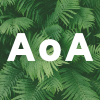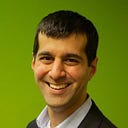Brief Review: “The Knowledge Gap”
“The Knowledge Gap: The Hidden Cause of America’s Broken Education System — and How to Fix It” by Natalie Wexler offers a research-backed historical perspective about how reading is taught in US schools and the role that knowledge plays in the achievement gap.
The book approaches the topic of the achievement gap and why American high school students perform poorly on standardized tests — particularly reading comprehension. The ability to read and comprehend is the gateway to further learning.
Wexler claims the problem with reading are far upstream and illustrates the challenge by walking through a few examples of elementary school classrooms and how reading is taught. Reading instruction does not suffer from a lack of focus or attention, but is taught painstakingly, systematically and mechanically, but divorced from content. Reading is taught as a skill — and the extra time and focus placed on this skill has taken time away time from teaching history or science. She delves deeper to explain the cognitive science, research, and the history of the instruction of reading in this country. All of this suggests her broader point that a) the achievement gap that surfaces in high school are manifestations of the poor instruction in elementary school and b) teaching knowledge is a key aspect to improve reading comprehension.
Knowledge here is general world knowledge — it can be history, science, current events, etc. Reading, on the other hand, is really two disparate skills: decoding — or translating the alphabet characters into words, and comprehension — the ability to understand the concepts and meaning of what is written.
The historical events that shaped reading instruction in this country were interesting but saddening — primarily by the extent to which education has been politicized in this country. It was honestly surprising to me — consider me an ignorant optimist — that one side of the political spectrum perceives the other side as trying to push a particular agenda through the education system.
The left advocates for a “free-range” style of teaching — that students should enjoy what they are learning, they should be able to choose from a range of books, and instead of rote, mechanical, automaton type instruction we should be grooming students to be independent, self motivated learners.
The right advocated for things like No Child Left Behind — that put an undue pressure on testing explicit reading as a skill — and minimizing social studies and science — perhaps the very knowledge that students need to improve their reading.
The political conflict has led to the inability to have a national content based curriculum and the unintended consequence of having poor reading comprehension as well as uninformed citizens on civic matters.
The interesting challenges in teaching reading seem to arise in the conflation of teaching the two different skill sets: decoding and comprehension. The research strongly shows that decoding is a mechanical skill and should be taught systematically and rote (e.g. systematic phonics). The research also shows that comprehension should NOT be taught singularly as a mechanical skill. The big thesis and finding that the book shares it that reading — primarily comprehension — is not divorced from knowledge and facts. The assumption has been that if you teach comprehension as a skill- then later you can read to learn the knowledge and facts.
But the research strongly shows that IF you are armed with knowledge and facts — then you can comprehend text much better. The mechanical skills typically taught for comprehension — e.g. what’s the main idea, sentence diagramming, etc. — are not that useful if the students don’t have basic knowledge of what they are reading about. And the corollary is also true — if students have basic knowledge about what they are reading about — the mechanical sentence structure instruction is not that necessary.
The implication is stark and the research supports the assertion that if you teach kids more facts and knowledge and guide and expose them to more complicated text — the comprehension and understanding will unfold.
Wexler provides several anecdotes where students are taught this way and shows that a) students are dramatically more engaged — students like learning stuff are innately curious (whereas sentence mechanics is boring and disconnected) and b) students comprehension (and world knowledge) all increase.
Wexler uses a variety of examples to demonstrate that children that come from affluent households are exposed to more facts and knowledge at an earlier age than low income students — what she refers to as concerted cultivation vs. natural growth parenting. While the merits can be debated — what’s clear is that as it pertains to knowledge and exposure wealthier parents expose their children to more dinner time discussions, extra curricular activities, etc — and those feed more exposure points and knowledge for those children. And this disparity shows up in the reading comprehension scores where schools attempt to focus on reading as a skill rather than focusing on teaching knowledge and bridging that gap.
In 1972, the wealthiest Americans were spending five times as much per child as the lowest-income families. By 2007, parents at all economic levels were spending more on their children, but the highest-income families were spending nine times as much.
The book makes a strong case for knowledge and content —illustrating through research backed studies and anecdotes of success. Along the way she challenges a number of key assumptions such as:
- kids should construct their own knowledge — teachers should not bore them with rote facts.
- learning is best when it happens naturally, driven by children’s interests — teacher should be a “guide on the side, not a sage on the stage.”
In reality the cognitive science research debunks these substantially.
One interesting point to make the case for knowledge — was that cognitive science shows that “we can think critically only when we have factual information at our fingertips”.
This an interesting point that I feel mirrors my own experience with math and physics. When I was helping students learn higher level math or physics in college — when students were not fluent with Algebra or their basic math — they had a hard time comprehending the higher level concepts. While they could go back and deconstruct each concept slowly — without having it at their fingertips they could not make the larger logical leaps.
The other point made on this topic is about the discovery of knowledge vs. the presentation of knowledge. While Wexler acknowledges we “need to interpret and synthesize to achieve true understanding” — the actual discovery of the facts can be pointless and inefficient for most subjects. Guiding students through this has proven to be far more effective and helps makes the case for content rich, driven curricula.
On an important related note — the book also addresses and challenges teacher education and training. Because of the above assumptions as well as the fact that the teaching training is often divorced from curricula — teachers themselves receive a very content poor experience. They are left with vague content free training and left to come up with the content themselves, and work to apply it. It’s inefficient and not often effective. She contrasts that to countries with strong content reach curricula:
In countries that perform well on international tests, like Singapore and Finland, teacher preparation is based in detailed, content-focused curricula, and new teachers aren’t expected to develop lessons from scratch.
Wexler also challenges Bill Gates and the Gates Foundation’s earlier initiatives and aim to test and train the “best” teachers. While Wexler does not dispute the importance of good and great teachers — she challenges the notion that this can be done absent a good and strong curricula. If teachers are not given the right tools, or worse given the wrong curricula, and the wrong test measures — how can they be expected to succeed.
In summary a few great take-aways:
- The ability to read critical difficult texts remain an important part of education and higher learning.
- World Knowledge is a critical aspect of teaching reading comprehension and has the important benefit of a more civics and science informed citizenry.
- Teacher education and ongoing teacher training should be based on the current cognitive science research.
- A strong content-rich curriculum will help students, and will help teachers be better teachers for those students. Students also enjoy content-reach curricula!
References and Nice Summaries:

